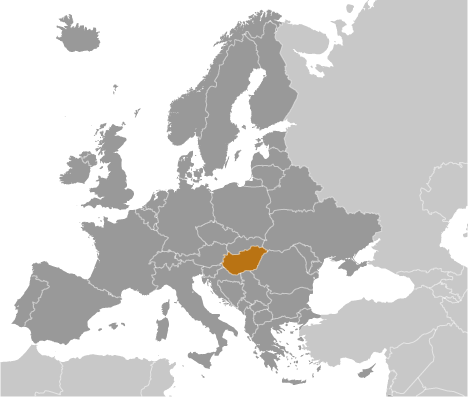HISTORICAL BACKGROUND
Article 61 (1) of the Constitution states:
In the Republic of Hungary, everyone has the right to the freely express his opinion, and furthermore to access and distribute information of public interest.(1)
The Constitutional Court ruled in 1992 that freedom of information is a fundamental right essential for citizen oversight.(2) In 1994, the Court struck down the law on state secrets, ruling that it was too restrictive and infringed on freedom of information.(3)
Act No. LXIII of 1992 on the Protection of Personal Data and Disclosure of Data of Public Interest is a combined Data Protection and Freedom of Information Act.(4) The Act guarantees that all persons should have access to information of public interest which is broadly defined as any information being processed by government authorities except for personal information. Requests can be written, oral or electronic. Agencies must respond in 15 days to requests.
State or official secrets and information related to national defense, national security, criminal investigations, monetary and currency policy, international relations and judicial procedure can be restricted if specifically required by law. Internal documents are generally not available for 10 years.
The Parliamentary Commissioner for Data Protection and Freedom of Information oversees the 1992 Act.(5) Besides acting as an ombudsman for both data protection and freedom of information, the Commissioner's tasks include: maintaining the Data Protection Register and providing opinions on data protection and information access-related draft legislation as well as each category of official secrets. In 2004, there was a total of 169 submissions relating to access to information, a 20 percent increase over 2003.(6) 71 of those were complaints and 86 were requests for consultations, 5 on official secrets and 7 ex officio investigations. 26 percent were from individuals. 16 percent from journalists and 31 percent were from public bodies asking for advice.
Those denied access can appeal to the courts.
There have been a number of significant amendments to the law in the last several years. In April 2003, the so-called "Glass Pockets Act" modified 19 different laws including the FOI to facilitate the transparency of the use of public funds by limiting business secrets, expanding disclosure requirements and requiring budget organizations to continually post updated financial information.(7) Act XIX of 2005 expanded the definition of public interest data, applied the law to judicial records, reduced the time for access to internal documents from 20 years down to ten, allowed oral and electronic requests, allowed the requestor to set the form of access, and expanded the power of the commissioner to investigate and issue recommendations and opinions.
Act XC of 2005 on the Freedom of Information by Electronic Means imposes E-FOI requirements for the law.(8) It requires a number of public bodies to create home pages and sets out in an annex an extensive list of information that needs to be released. The Minister of Informatics and Communications must create a central list of databases and registries and a uniform public data search engine. Ministries must also publish information about draft legislation and ministerial decrees and related documents. Many court decisions must also be published. The cases should be anonymised.
The Parliamentary Commissioner in his 2004 report noted a number of continuing problems including access to court records and the cost of disclosures on public bodies. Regulatory bodies who refused to reveal their activities were also a problem.
The Secrecy Act of 1995 sets rules on the classification of information.(9) It was amended in 1999 to incorporate NATO rules and substantially revised by Act LIII of 2003. The Parliamentary Commissioner is entitled to change the classification of state and official secrets. The Commissioner conducted an investigation and found that most bodies that used the act were properly classifying information but also reported that the Government Control Office (KEHI) has resisted following the orders of the Commissioner on implementing the lists of secrets. The Parliament in 2006 began a review of the Act to revise it to make it conform with EU and NATO rules. The bill was withdrawn following public criticism.(10)
Article 221 of the 1978 Criminal Code allows for imprisonment of up to five years for breaching state secrets. Miklos Haraszti, the OSCE Representative on Freedom of the Media and a former Hungarian dissident, criticized the government in November 2004 for using the law against a journalist who quoted from a police report on a MP under investigation. The Commissioner ruled that the report was not be eligible to be secret and was declassified by the police.(11)
Individuals can have access to their own files created by the communist-era secret police under the 2003 Act on the Disclosure of the Secret Service Activities of the Communist Regime and on the Establishment of the Historical Archives of the Hungarian State Security which replaced 1994 Screening Act.(12) The Historical Archive of the Hungarian State Security controls the files.(13) The law was amended to allow for greater access following revelations that Prime Minister Peter Medgyessy once worked for the communist-era intelligence service.(14) The law makes information about high ranking public officials public data and allows victims to see the records of the people who spied on them. However, the Commissioner was critical of the new law as limiting some access rights and not defining public figures properly.(15) The government announced in December 2004 that it planned to fully open the files.(16)
Under the Act on Public Records, Public Archives, and the Protection of Private Archives, public authorities must transfer files within 15 years.(17) Any individual can access records over 30 years old. Archives can be closed for longer in the interest of privacy, state secrets, official secrets and confidential business data.
Hungary signed the Aarhus Convention in December 1998 and ratified it in July 2001. The Protocol on Pollutant Release and Transfer Registers was signed in May 2003 and Hungary joined the European Pollutant Emission Register in March 2004. Access to environmental information is through the 1992 FOI/DP Act. In July 2005, the European Commission announced that it was taking legal action against Hungary and six other countries for failing to implement the 2003 EU Directive on access to environmental information.(18)
The Criminal Code punishes the failure to comply with obligations to provide public information, render it inaccessible, or the publishing of false or untrue information.(19)
2004 freedominfo.org Global Survey Results - Hungary
NOTES
Constitution of the Republic of Hungary, http://www.uni-wuerzburg.de/law/hu00000_.html
Decision 32/1992.(VI.29.) ABH
Decision 34/1994 (VI.24) AB
Act LXIII OF 1992 on the Protection of Personal Data and the Publicity of Data of Public Interest, http://abiweb.obh.hu/dpc/legislation/1992_LXIIIa.htm
Web Site: http://www.obh.hu/
Annual Report of the Data Protection and FOI Ombudsman for 2004.
Act XXIV of 2003 Amending Certain Acts on the Use of Public Funds, the Public Disclosure, Transparency and Increased Control of the Uses of Public Property (The "Glass Pockets Act"). http://www.freedominfo.org/documents/hu_trans_2005tvy90.doc
Act XC of 2005 on the Freedom of Information by Electronic Means.
Act LXV of 1995 on State and Official Secrets.
See HCLU, The transparency of the State is in jeopardy! The draft Secrecy Act must be revoked!, 19 January 2006. http://www.tasz.hu/index.php?op=contentlist2&catalog_id=2423
Organization for Security and Co-operation in Europe Representative on Freedom of the Media, OSCE media watchdog criticises Hungary over arbitrary harassment of journalist, 16 November 2004.
Act III of 2003 on the Disclosure of the Secret Service Activities of the Past Regime and the Historic Archive of the National Security Services, 14 January 2003. http://www.th.hu/html/en/acts/ABTL_4_2003_evi_III_tv_e.pdf. Act XXIII of 1994 on the Screening of Holders of Some Important Positions, Holders of Positions of Public Trust and Opinion-Leading Public Figures, and on the Office of History.
Homepage: http://www.th.hu/index_e_start.html
For more information on the controversy, see RFE/RL NEWSLINE Vol. 6, No. 117, Part II, 24 June 2002.
Recommendation of the Data Protection Commissioner summarizing the results of the investigation concerning the enforcement of freedom of information and informational self-determination pursuant to Act III of 2003 on the Disclosure of the Secret Service Activities of the Past Regime and the Historic Archive of the National Security Services, 15 December 2003.
Hungary to Open Spy Files - More communist-era spies may be revealed when the files are opened, DW, 9 December 2004.
Act LXVI of 1995 on Public Records, Public Archives, and the Protection of Private Archives. http://www.th.hu/html/en/acts/Act_LXVI_of_1995.doc
European Commission, Public access to environmental information: Commission takes legal action against seven Member States, 11 July 2005.
Act IV of 1978 on the Criminal Code. http://abiweb.obh.hu/dpc/legislation/1978_IV_177a.htm





















